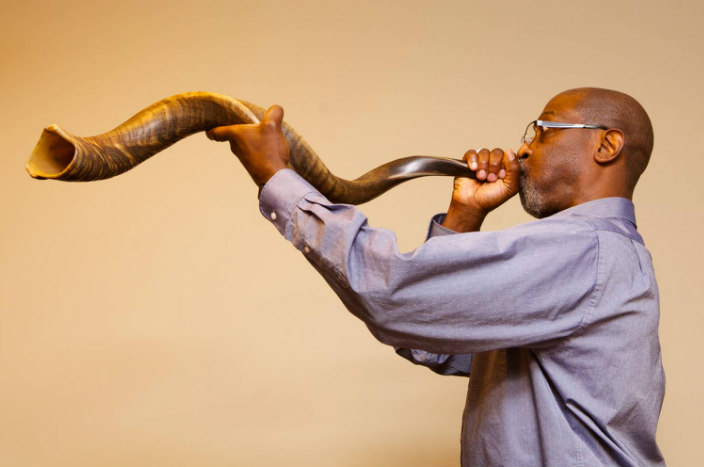
is the Hebrew month that precedes the High Holidays (Rosh HaShanah and Yom Kippur).
Some say that the Hebrew letters that comprise the word Elul – aleph, lamed, vav, lamed – are an acronym for “Ani l’dodi v’dodi li,” a verse from Song of Songs that means “I am my beloved’s and my beloved is mine.” Most often interpreted as a dialogue of love poetry, the phrase also reflects the love between God and the Jewish people. This is especially pertinent during this season as we assess our actions and behaviors during the past year while hoping for blessings in the coming year.
Several customs during the month of Elul are designed to remind us of the liturgical season and help us prepare ourselves and our souls for the upcoming High Holidays.
1. Blowing the shofar
Traditionally, the shofar is blown each morning (except on Shabbat) from the first day of Elul until the day before Rosh HaShanah. Its sound is intended to awaken the soul and kick start the spiritual accounting that happens throughout the month. In some congregations, the shofar is sounded at the opening of each Kabbalat Shabbat service during Elul.
2. Saying special prayers
Selichot (special penitential prayers) are recited during the month of Elul. A special Selichot service is conducted late in the evening – often by candlelight – on the Saturday night one week before Rosh HaShanah.
3. Visiting loved ones' graves
Elul is also a time of year during which Jews traditionally visit the graves of loved ones. This custom not only reminds us of the individuals on whose shoulders we now stand and helps us honor their memories, but also prompts us to think about our own lives and the legacies we will leave to others. These legacies take on added meaning as we enter the High Holiday season. Rabbi Daniel B. Syme explains more about this custom.
4. Reading Psalm 27
It is customary to read Psalm 27 each day from the beginning of Elul through Hoshana Rabbah, the last day of Sukkot.
5. Reflecting
Elul is a month during which we are encouraged to study and take time to reflect on our actions over the past year, seeking forgiveness from those we have wronged or with whom we have “missed the mark.” There are many readily available resources to help you make this process interactive.
May you find meaning and fulfillment in this time leading up to the High Holidays.



